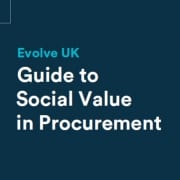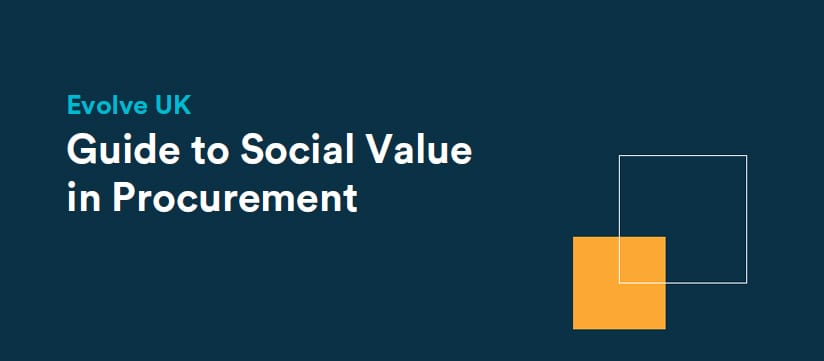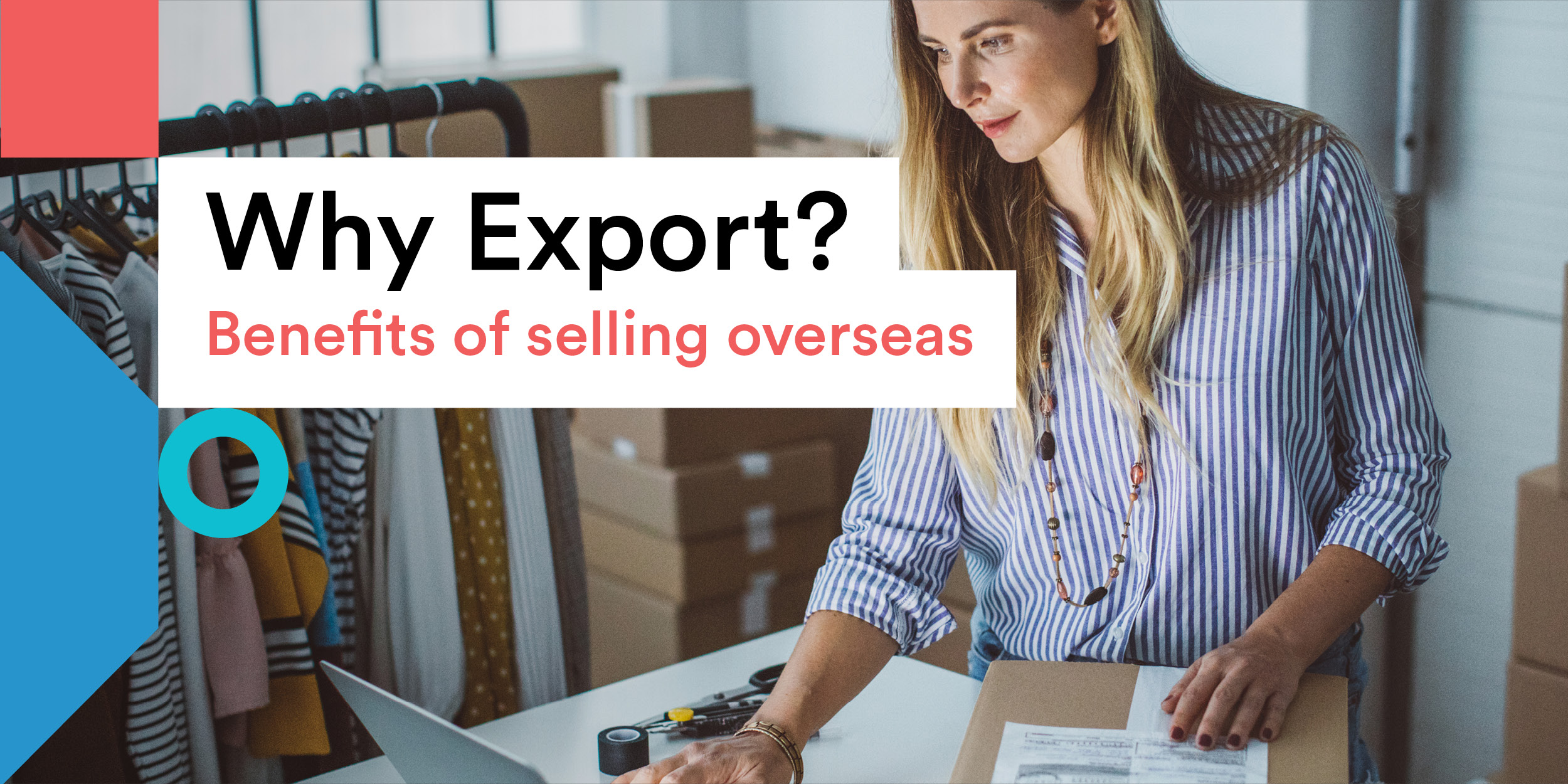CX Index – Capturing valuable customer feedback
David Heneghan is the CEO of CX Index, a Voice of the Customer software company successfully doing business in the Nordic region
What does CX Index do?
CX Index is a feedback management platform. Our SaaS technology enables our customers to capture feedback from their customers through channels such as email, chat and IVR. Then, with a range of automated processes, we integrate that feedback with a host of other data sets, so our customers have the context that is necessary to measure, manage and ultimately improve customer experience.
According to Gartner’s latest Voice of the Customer vendor guide, there are over 1000 vendors within the voice of the customer space, with 29 of these leading the wa “based on their vision and technology”. CX Index is in that cohort of 29, which includes others such as Qualtrics and Medallia and the market in which we operate is incredibly competitive. This is why we invest in innovation, including utilising AI and machine learning capabilities to remain differentiated from our competitors.
What inspired you to start the company?
I started my career as a bond trader for an investment bank and I saw that the decision-making tools that traders used to bet on the performance of companies seemed superior to the decision-making tools of the companies we were betting on as traders. After digging a bit deeper, I discovered that the problem for the corporates was not a lack of technology, capability, or resources – the problem was a lack of data related to measuring customer experience.
I discovered that feedback is the key metric for customer experience and determined that it would be great to build a tool around this. I then realised that there was a burgeoning industry dedicated to solving this problem but also recognised it was a large market still in its early days.
Having identified the opportunity, I needed to find someone with technical abilities to build a product. I then got introduced Piotr, who is our CTO, we started the business 8 years ago and it’s been a great journey that I would recommend anyone to take.
What first attracted you to the Nordic region?
Back in autumn 2017 I was on a call with a Gartner analyst who was advising on the latest trends around customer experience and during this conversation I asked which markets he thought would be best for an emerging business like ours. In European terms he said he would recommend the Nordics as he felt that the Scandinavians are forward thinking with technology and open to fresh ideas and solutions plus the markets were a bit smaller than the likes of France, UK and Germany, which make them more manageable.
Around the same time we were introduced to a Scandinavian company that was in the same space as us but doing something different.
Knowing what the analyst had said to me, I immediately decided to get on a plane to meet the prospect face to face. I think it’s important where appropriate to do that, once it adheres with official travel guidelines. It shows a level of commitment, and very soon after our first meeting we started working together. Over the last 2 and a half years we have worked together to sell into over twenty companies in the Nordics, three of which were in the last two months which is remarkable given the current climate.
The company has seen strong growth in the Nordics – what do you attribute your success to?
Firstly, we have been lucky with the partner we found and have put a lot of work into provisioning our technology so that the partner now has a lot of autonomy in selling our platform. They are not just re-selling our tool, but they have the capability to market, to sell, integrate and set up their customers on our platform without the need for us to ever meet any of these customers. This wasn’t straightforward by any means, but it has set us up on a firm footing for a fruitful long-term relationship.
What type of companies do you sell into?
We have customers in a host of industries such as retail, retail banking, insurance, hospitality, utility companies (nine of which are in the Nordics), travel companies, B2B companies, BPOs, technology companies and government agencies. Basically, if a business needs to capture feedback from their customers, we generally have a solution to fit their needs. That said, we primarily work with medium to large businesses.
What are your top tips for exporting to the Nordics
1. Get on the ground to build your network
Face to face meetings count for a lot, so the best way to achieve that is to go and meet people once you comply with current travel advice. If you feel like it’s a market that you want to pursue, it’s worthwhile reaching out to Enterprise Ireland in the region, as they host great events and offer a range of support.
2. Find a partner
If you can identify a strong partner that has a complementary solution or product, it makes life a lot easier. It’s easier for them to sell into their existing customer base than for you to start from ground zero. We have been very lucky with the Provad / Visma relationship.
3. Focus on a region
If you get success in a geographic region or country, we have found it is good to focus on that region and try to expand your capabilities there. Having experienced growth in several markets now, we know that local references do count for a lot and it is worth trying to capitalise on these.
What are your aspirations for the future of CX Index in the Nordics?
We have had a lot of success in the Finnish market to date and are looking to expand our footprint in Norway, Denmark and Sweden. I hope to double our customer base in the Nordics before the end of 2021. Given our track record, I think that this is eminently achievable, even with what is happening with the Covid-19 pandemic.
It is nice to work in places where there is a nice culture and as a region for doing business I plan for it to remain a top priority for some time to come.
Contact our Nordics team to discuss how Enterprise Ireland can support your business.


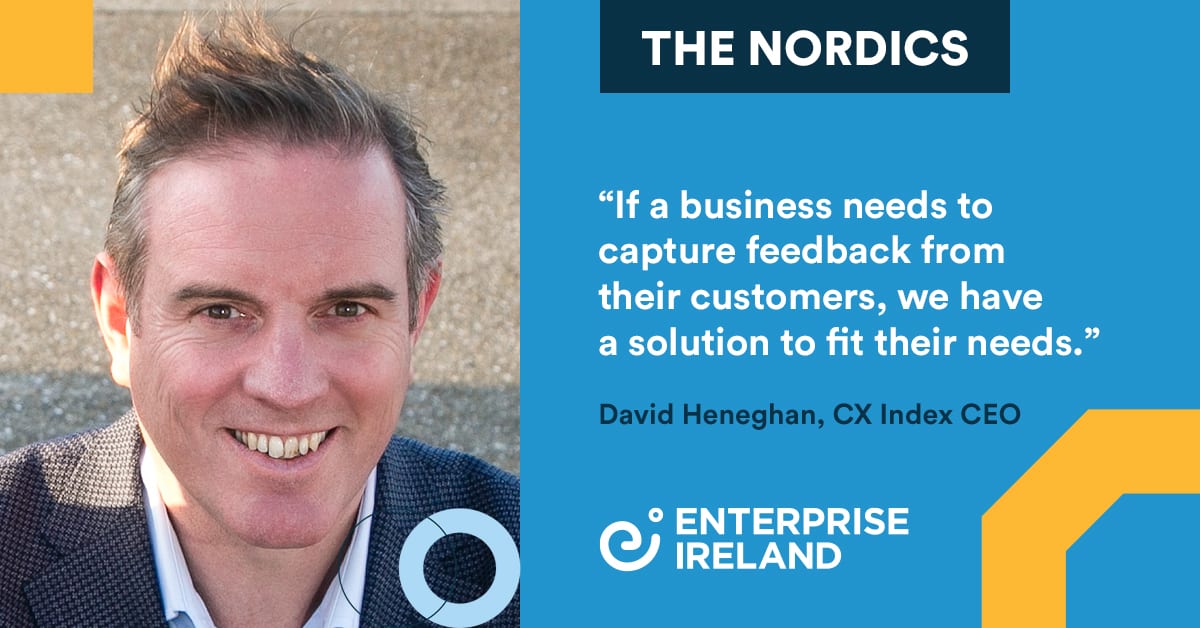
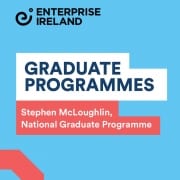
 Currently in year two with Enterprise Ireland’s National Graduate Programme, Stephen McLoughlin describes his experience of working across the Brexit division and Covid-19 response unit.
Currently in year two with Enterprise Ireland’s National Graduate Programme, Stephen McLoughlin describes his experience of working across the Brexit division and Covid-19 response unit.







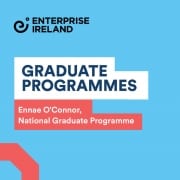
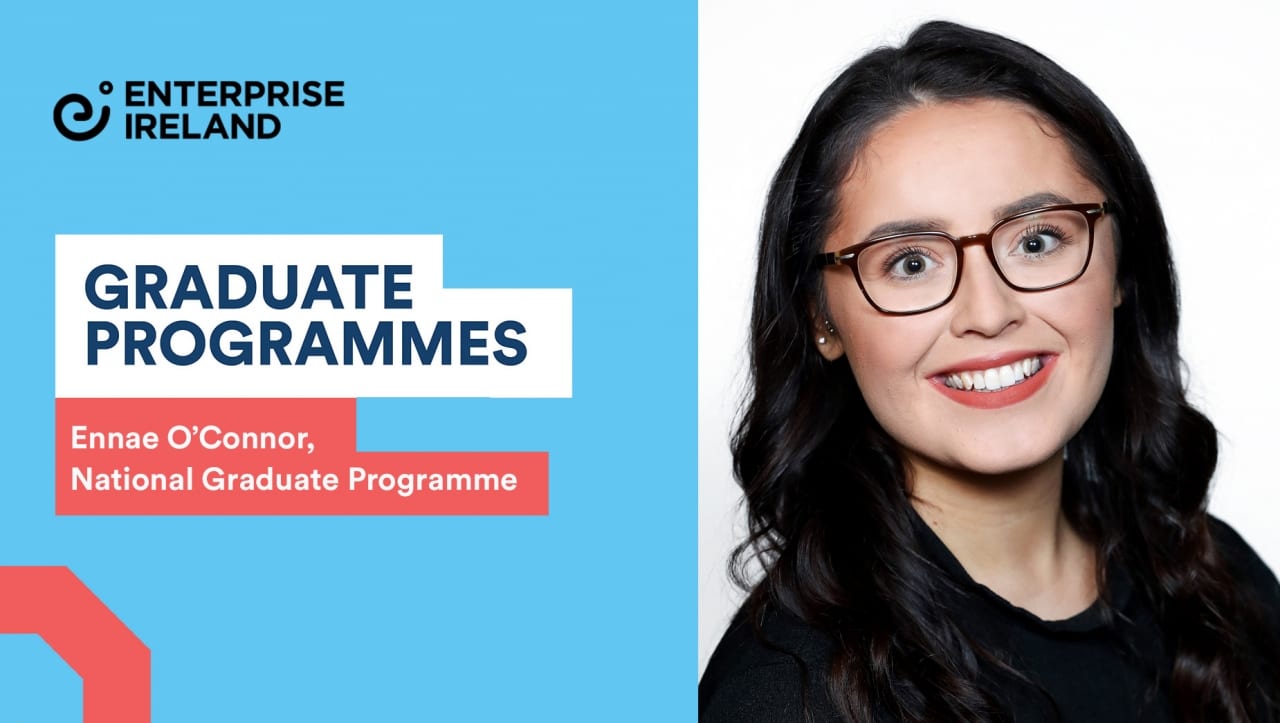 Ennae O’Connor is in first year with the National Graduate Programme, working in the Organisational Development department.
Ennae O’Connor is in first year with the National Graduate Programme, working in the Organisational Development department.

